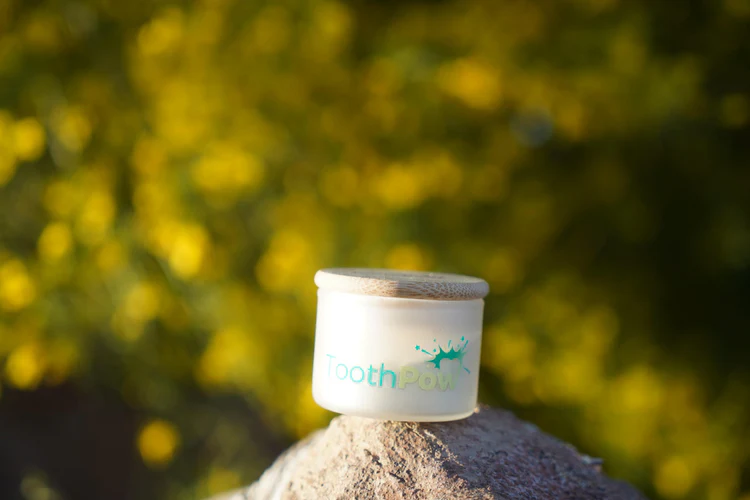Discover the transformative benefits of incorporating natural toothpaste into your daily routine. As we strive for healthier lifestyles, the products we use daily play a crucial role. Natural toothpaste offers a compelling alternative to traditional options, harnessing the power of nature to enhance oral health. From avoiding harmful chemicals to embracing eco-friendly practices, the advantages are manifold. This introduction delves into the reasons why natural toothpaste is gaining popularity and how it can revolutionize your dental care regimen. Join us on a journey to explore the wonders of natural toothpaste and unlock the secrets to a brighter smile and a healthier you.
Benefits of Using Natural Toothpaste
When it comes to oral hygiene, using natural toothpaste can offer several advantages over traditional options. Here are some key benefits to consider:.
Whitening properties of natural toothpaste: Many natural toothpaste brands contain ingredients like baking soda, activated charcoal, or hydrogen peroxide, which can help whiten teeth without the use of harsh chemicals. These natural whitening agents can gently remove surface stains, resulting in a brighter smile over time.
Fresh breath and oral health benefits: Natural toothpaste often incorporates essential oils like peppermint, tea tree, or eucalyptus, which not only freshen breath but also possess antibacterial properties. These oils can help combat bad breath and support overall oral health by reducing harmful bacteria in the mouth.
Comparison of natural toothpaste effectiveness with traditional options: While some may question the effectiveness of natural toothpaste compared to traditional fluoride-based toothpaste, studies have shown that certain natural ingredients can be equally as effective in preventing cavities and maintaining oral hygiene. Additionally, natural toothpaste is free from artificial colors, flavors, and preservatives, making it a safer choice for those with sensitivities or allergies.
Environmentally friendly: Natural toothpaste is often packaged in eco-friendly materials, reducing plastic waste and promoting sustainability. By choosing natural toothpaste, you contribute to a greener planet.
Sensitivity relief: Many natural toothpaste formulations cater to individuals with sensitive teeth or gums. Ingredients like aloe vera, chamomile, or coconut oil can help soothe sensitivity and provide a gentle cleaning experience.
Holistic approach to oral care: Natural toothpaste aligns with a holistic approach to health, focusing on the overall well-being of the individual. By avoiding synthetic chemicals and artificial additives, natural toothpaste supports a more natural lifestyle.
Antimicrobial properties: Some natural toothpaste ingredients, such as xylitol, have been found to have antimicrobial effects, reducing the levels of bacteria that cause tooth decay and gum disease. This can contribute to better long-term oral health.
Nutrient-rich formulations: Natural toothpaste may contain minerals like calcium, magnesium, and phosphorus, which can help strengthen tooth enamel and promote remineralization, aiding in cavity prevention and overall dental health.
Reduced risk of allergic reactions: Individuals with sensitivities to common toothpaste ingredients like sodium lauryl sulfate or artificial sweeteners may find relief in natural toothpaste formulations that exclude these potentially irritating components.
The benefits of using natural toothpaste extend beyond just oral health, offering a more holistic approach to dental care that is gentle yet effective. Consider making the switch to natural toothpaste to experience these advantages firsthand.

Making Informed Choices
When it comes to oral care products, making informed choices is crucial for both your health and the environment. One significant aspect of this is educating yourself on natural toothpaste manufacturers. By researching and understanding the practices of different companies, you can select products that align with your values and health goals.
The evolution of natural toothpaste in the market is another key point to consider. Over the years, there has been a noticeable shift towards more sustainable and eco-friendly oral care options. This evolution signifies a growing awareness among consumers about the impact of traditional toothpaste ingredients on personal health and the planet.
Understanding the importance of ingredient transparency is essential for anyone looking to make conscious choices. Natural toothpaste often boasts ingredients that are easily recognizable and free from harmful chemicals. By prioritizing products with transparent ingredient lists, you can ensure that you are making a positive choice for your well-being and the environment.
In addition to selecting natural toothpaste based on manufacturer practices and ingredient transparency, it's also crucial to consider the specific benefits these products offer. Natural toothpaste often contains ingredients like baking soda, essential oils, and plant extracts that not only clean teeth effectively but also provide additional oral health benefits. For example, some natural toothpaste variants may focus on whitening, sensitivity relief, or promoting gum health.
Furthermore, the environmental impact of traditional toothpaste cannot be overlooked. Many conventional toothpaste brands use plastic packaging that contributes to pollution and waste. In contrast, natural toothpaste manufacturers are increasingly adopting eco-friendly packaging options such as recyclable tubes or glass jars, reducing the overall carbon footprint of the product.
When exploring natural toothpaste options, it's essential to look beyond just the product itself. Consider the overall sustainability practices of the manufacturer, including their sourcing methods, production processes, and commitment to environmental stewardship. By supporting companies that prioritize sustainability and ethical practices, you can contribute to a healthier planet while also caring for your oral health.
Making informed choices about natural toothpaste goes beyond personal benefits; it's a step towards creating a more sustainable future for generations to come. By educating yourself, understanding the evolution of natural oral care products, and valuing ingredient transparency, you can make a positive impact on both your well-being and the environment.
Daily Oral Care with Toothpaste
Proper toothpaste usage and brushing techniques:
Using the right amount of toothpaste is crucial for effective oral care. A pea-sized amount is generally recommended for adults, and it should be spread evenly on the toothbrush bristles. Brushing techniques such as gentle circular motions and reaching all areas of the mouth are essential for thorough cleaning. It is also important to brush for at least two minutes to ensure all surfaces are cleaned properly. Remember to replace your toothbrush every three to four months or sooner if the bristles are frayed.
Role of toothpaste in maintaining oral hygiene:
Toothpaste plays a vital role in maintaining oral hygiene by removing plaque, bacteria, and food particles from the teeth and gums. Some toothpaste variants also target specific issues like sensitivity, tartar control, or whitening.
Additional benefits of using toothpaste beyond cleaning:
Apart from cleaning teeth, toothpaste offers additional benefits such as freshening breath, reducing bacteria that cause bad breath, and providing a pleasant taste after brushing. Some toothpaste formulations include ingredients like baking soda for whitening or essential oils for antibacterial properties, enhancing overall oral health. Additionally, certain toothpaste brands incorporate natural ingredients like tea tree oil or aloe vera for their soothing and healing properties. These ingredients can help with gum inflammation and promote overall gum health.
Choosing the right toothpaste for your specific needs is crucial. Whether you require extra help for cavity protection, desensitizing agents for sensitive teeth, or herbal ingredients for a more natural approach, there is a toothpaste tailored to address your concerns. Remember to consult with your dentist to determine the most suitable toothpaste for your oral health needs.
In addition to the mentioned benefits, toothpaste also aids in preventing gum disease. The antimicrobial agents in toothpaste help combat harmful bacteria that can lead to gum infections and periodontal disease. Regular brushing with toothpaste can reduce the risk of gum inflammation and gingivitis, promoting overall gum health.
Furthermore, some advanced toothpaste formulations now include probiotics that contribute to a healthier oral microbiome. These beneficial bacteria help maintain a balanced oral environment, reducing the growth of harmful bacteria that can cause dental issues. By incorporating probiotics into toothpaste, manufacturers aim to provide a more holistic approach to oral care, focusing not only on cleaning but also on promoting a healthy bacterial balance in the mouth.
It's essential to note that while toothpaste is a fundamental component of oral hygiene, it should be complemented with regular flossing, mouthwash use, and dental check-ups. A comprehensive oral care routine that includes proper toothpaste usage, along with other dental hygiene practices, is key to maintaining a healthy smile and preventing dental problems in the long run.
Choosing the Right Toothpaste: A Guide to Oral Health
Choosing the right toothpaste is a critical decision that directly impacts your oral health. With a plethora of options lining the shelves of stores, it can be overwhelming to select the most suitable toothpaste for your individual needs. When navigating through the sea of toothpaste choices, it's essential to consider several key factors to ensure you make an informed decision.
Understanding Your Oral Health Needs
Firstly, understanding your specific oral health needs is paramount. Factors such as sensitivity, gum health, enamel strength, and cavity prevention should guide your selection process. For individuals with sensitive teeth, desensitizing toothpaste with ingredients like potassium nitrate or strontium chloride can provide relief from discomfort triggered by hot or cold stimuli. Those prone to gum issues may benefit from toothpaste formulated to promote gum health, typically containing antibacterial agents like triclosan or herbal extracts like eucalyptus. Enamel-strengthening toothpaste often includes remineralizing agents such as calcium phosphate to fortify tooth structure and combat erosion.
The Role of Fluoride
Switching to a fluoride-free toothpaste doesn't mean compromising on oral health. With a variety of effective alternatives available, you can maintain strong, healthy teeth while avoiding fluoride. Whether you choose hydroxyapatite for remineralization, xylitol for its antibacterial properties, or clay for gentle cleansing, there's a natural toothpaste option to suit every preference and need. Explore these alternatives and enjoy the benefits of a more natural approach to oral care.
Beware of Harmful Ingredients
It's crucial to be mindful of potentially harmful ingredients in toothpaste, such as sodium lauryl sulfate (SLS) or microbeads, which can cause irritation or harm the environment. Opting for toothpaste with the ADA Seal of Acceptance ensures that the product has undergone rigorous testing for safety and efficacy.
Consult Your Dentist
Regular consultations with your dentist can provide personalized recommendations based on your oral health status and concerns. Remember, your choice of toothpaste plays a significant role in maintaining a healthy smile and preventing dental issues, so choose wisely to safeguard your oral well-being.
Natural Toothpaste vs. Traditional Options
When it comes to oral hygiene, the debate between natural toothpaste and traditional options continues to gain momentum as consumers become more conscious of the ingredients they expose themselves to daily. In this comprehensive comparison, we will explore the effectiveness of natural toothpaste versus traditional options, delve deeper into the advantages of choosing natural alternatives, and debunk common myths surrounding natural toothpaste.
Effectiveness Comparison:
Natural toothpaste stands out for its reliance on ingredients sourced from nature, avoiding synthetic chemicals commonly found in traditional toothpaste. While traditional toothpaste may contain artificial colors, preservatives, and harsh detergents like sodium lauryl sulfate, natural toothpaste formulations often feature gentle abrasives like baking soda, antimicrobial essential oils, and soothing herbal extracts. Research indicates that natural toothpaste can be just as effective as traditional options in preventing cavities and gum disease, offering a compelling alternative for those seeking a more holistic approach to oral care.
Advantages of Natural Toothpaste:
Beyond their efficacy, natural toothpaste products boast a range of benefits that appeal to health-conscious consumers. By steering clear of potentially harmful additives like artificial sweeteners, triclosan, and fluoride, individuals can minimize their exposure to substances that may trigger sensitivities or raise environmental concerns. Moreover, many natural toothpaste brands prioritize cruelty-free practices, sustainable sourcing, and biodegradable packaging, aligning with the values of eco-conscious shoppers.
Addressing Common Misconceptions:
Despite the growing popularity of natural toothpaste, misconceptions persist regarding its performance and suitability for everyday use. One prevalent myth is that natural toothpaste lacks fluoride, a mineral known for its cavity-fighting properties. While some natural formulations omit fluoride, others incorporate natural sources of fluoride or alternative remineralizing agents to support dental health. It's essential for consumers to discern between marketing claims and scientific evidence when selecting a natural toothpaste that aligns with their oral care needs.
Additional Information:
In addition to the benefits mentioned, natural toothpaste often contains antibacterial properties that can help combat harmful bacteria in the mouth, promoting fresher breath and overall oral health. Furthermore, the absence of artificial colors and flavors in natural toothpaste can be beneficial for individuals with sensitivities or allergies. Many natural toothpaste options also come in eco-friendly packaging, reducing plastic waste and environmental impact.
Conclusion:
Choosing between natural toothpaste and traditional options ultimately comes down to personal preferences and values. While traditional toothpaste may offer familiarity and certain benefits, natural toothpaste provides a cleaner, more sustainable alternative that aligns with a holistic approach to wellness. By understanding the ingredients and benefits of natural toothpaste, consumers can make informed decisions that support their oral health and environmental consciousness.

The Role of Fluoride in Toothpaste
Understanding Fluoride's Function
Fluoride is a naturally occurring mineral that has been added to toothpaste for decades. Its primary function is to prevent tooth decay by:
Strengthening Enamel: Fluoride helps to remineralize tooth enamel, making it more resistant to acid attacks from bacteria and sugars in the mouth.
Preventing Cavities: By reinforcing enamel, fluoride helps to reduce the risk of cavities, a common dental issue affecting people of all ages.
Combating Bacteria: Fluoride can inhibit the growth of harmful oral bacteria, contributing to overall oral health.
Controversies and Concerns
Despite its widespread use, fluoride has been the subject of various health concerns and controversies:
Dental Fluorosis: Overexposure to fluoride during tooth development can lead to dental fluorosis, which causes discoloration and mottling of the teeth.
Systemic Health Concerns: Some studies suggest that excessive fluoride intake could be linked to other health issues, such as bone problems and thyroid dysfunction.
Environmental Impact: The production and disposal of fluoride-containing products can have negative environmental consequences.
Hydroxyapatite: A Better Alternative
What is Hydroxyapatite?
Hydroxyapatite is a naturally occurring mineral that constitutes the primary component of tooth enamel and bones. It is increasingly being recognized as an effective and safer alternative to fluoride in toothpaste.
Benefits of Hydroxyapatite
-
Natural Remineralization
How It Works: Hydroxyapatite nanoparticles integrate seamlessly with tooth enamel, promoting natural remineralization. This process strengthens teeth from the inside out, effectively repairing early signs of decay.
Better Integration: Unlike fluoride, which relies on a chemical reaction to protect enamel, hydroxyapatite directly replenishes lost minerals, making the enamel more robust.
-
Biocompatibility
Safe for All Ages: Hydroxyapatite is biocompatible, meaning it is safe and non-toxic for use by individuals of all ages, including young children and pregnant women.
No Risk of Fluorosis: Since hydroxyapatite is a natural component of teeth, there is no risk of overexposure leading to dental fluorosis or other systemic health issues.
-
Effective Against Sensitivity
Soothing Properties: Hydroxyapatite helps to block the tiny tubules in dentin that cause tooth sensitivity, providing relief from pain triggered by hot, cold, or sweet stimuli.
-
Bacterial Defense
Inhibiting Harmful Bacteria: Similar to fluoride, hydroxyapatite can help reduce the presence of harmful bacteria in the mouth. It supports a healthy oral microbiome by promoting the growth of beneficial bacteria.
Conclusion
While fluoride has played a crucial role in improving dental health, the growing body of evidence supporting hydroxyapatite offers a compelling case for its adoption as a superior alternative. By providing natural remineralization, enhanced biocompatibility, and effective sensitivity relief without the associated risks of fluoride, hydroxyapatite-based toothpaste represents the future of oral care. For those seeking a healthier, more natural approach to maintaining strong and cavity-free teeth, hydroxyapatite is an excellent choice.
Conclusion
Incorporating natural toothpaste into your daily routine can bring a multitude of benefits to your oral health and overall well-being. From avoiding harmful chemicals to promoting a more sustainable lifestyle, the advantages are clear. By making this simple switch, you can contribute to a healthier environment while taking care of your teeth and gums naturally. To explore a range of natural toothpaste options and make the transition easier, visit. http://toothpow.com And sign up to be notified when the store launches. Embrace the power of nature for a brighter smile and a healthier planet.

